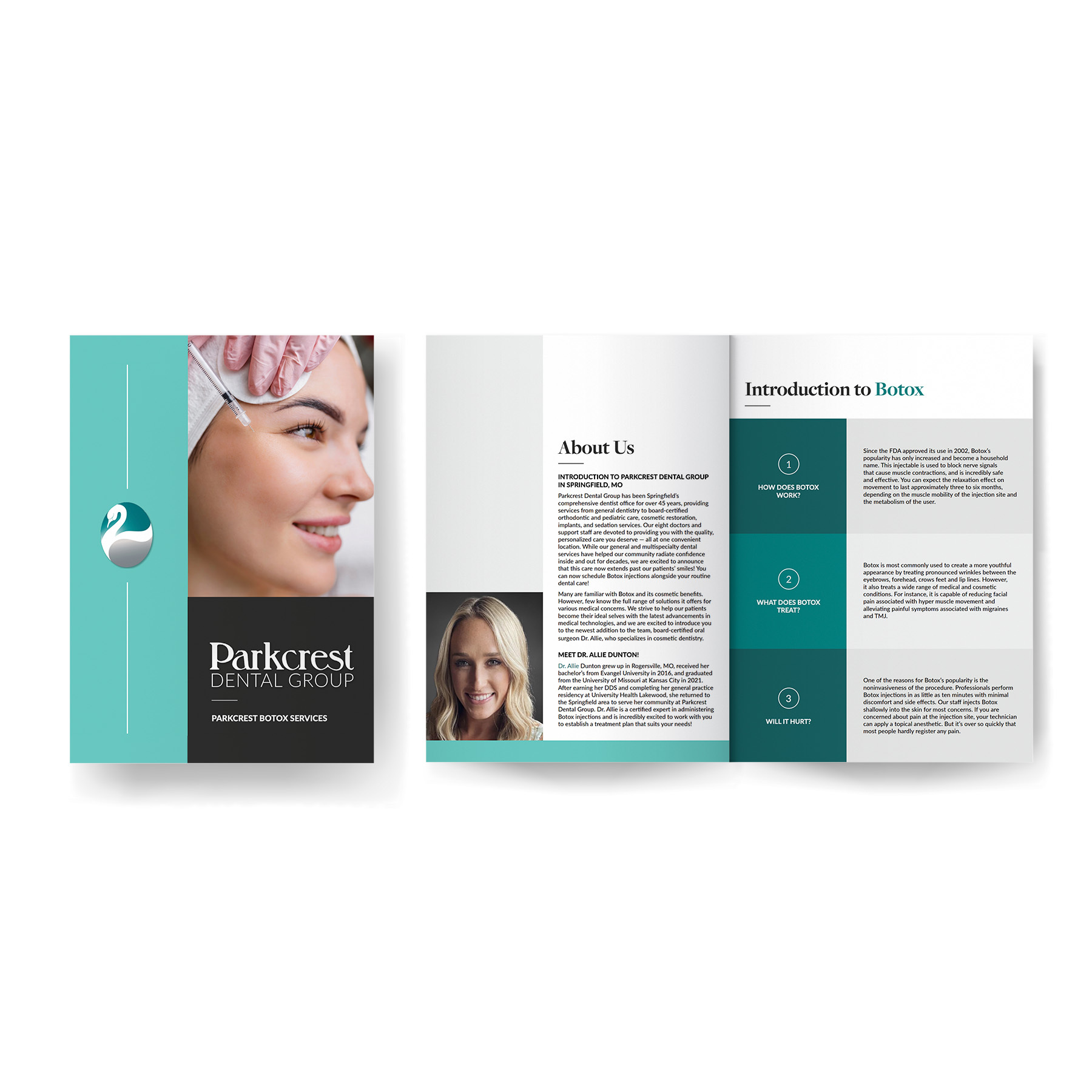It’s easy to set up treatment times to coincide with routine dental care visits. Having your trusted dental professional administer Botox can help you feel more comfortable and relaxed, knowing you are in good hands at each appointment. There is much more to a smile than teeth; smiling also involves many muscles and other soft tissues of the head and face. With proper application, combined with good oral care, Botox offers a variety of ways to give your dental professional more tools to help enhance your most confident smile.

Botox is a manufactured, injectable medication used to help reduce the strength of targeted muscles and is widely known to be used to reduce the appearance of wrinkles and facial pain associated with hyper muscle movement.
Over a period of days after the initial injection, Botox begins to work by adhering to the ending of nerves in the specific areas in which they are injected, inhibiting them from transmitting signals to other nerve receptors. This effectively blocks them from sending the signals that would cause surrounding muscles to contract. This blocking of signals helps keep the surrounding muscles more relaxed, continuing to work effectively from anywhere between 3 – 4 months at a time.
With advancements in treatment applications, it should come as no surprise that Botox is gaining popularity in use in the dental field. Issues such as: TMJ, clenching, headache relief, high lip line, difficult denture fittings due to repositioned lip muscles and cosmetic purposes make Botox a good choice for many people.
High Lip Line: Patients often deal with issue relating to what is often referred to as a “gummy” smile. Use of Botox can help relax lip muscles, effectively lowering the lip line and creating a more aesthetically pleasing smile with minimal invasiveness.
TMJ/Bruxism: When muscles in the jaw contract too forcefully, this can cause pain, grinding at night – or even during the daytime hours. Excessive grinding can cause dental issues such as damage to jaw and teeth structures. Extreme grinding and clenching of teeth can also be very painful, cause headaches and lead to eventual damage to teeth and surrounding tissues. In some cases, Botox can be used to help relax muscles in the jaw, relieving the overly strong force of muscle contractions. Often Botox is used in conjunction with a night guard or other therapy appliance for treatment of TMJ and clenching/grinding issues – helping avoid the need for more costly restorative treatment over time.
Facial Wrinkling: Primary treatment to areas due to facial wrinkling from muscle movements include: Radial lip lines or “water bottle lines” surrounding the mouth, glabellar or “frown lines” directly between the eyebrow area, crow’s feet around the outer eyes and horizontal forehead lines.
Edentulous patients can benefit from Botox treatment when the muscles in the lip may have been repositioned – causing difficulty in getting a good fit on a new denture. It has been found that relaxing that muscles can help make the new denture fit more comfortably for some patients, assisting in the overall fit of a dentures so patient may experience a more successful outcome.
Botox injections are typically effective between 3 and 4 months at a time, after which the process can be repeated and the site retreated. For benefits to remain optimal, it will be necessary to keep up with a schedule of in-office treatments. A variety of factors from patient to patient will determine the exact duration of effect and the amount of Botox needed for the best outcome. Your dental professional will work with you to develop a treatment plan to help determine the optimal duration between each scheduled treatment session.
Botox is a minimally invasive procedure and is administered within a matter of minutes by simple injection to the desired treatment areas in measured units. During your scheduled appointment, your dental professional will consult with you on treatment and will come up with the appropriate number of units necessary for an effective, desired outcome. Most appointment times take less than 30 minutes.
Botox costs vary depending on desired outcome as well as the number of treatment areas. Cost is determined per unit – with each unit costing about $12. Every patient is unique and typically requires multiple units per site and per treatment time for best results. Your dental professional will discuss optimal treatment for your desired outcome during your visit.